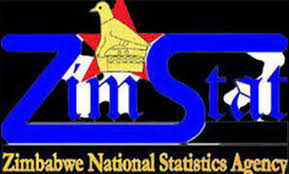
THE Zimbabwe National Statistics Agency (ZimStat) has flagged the country’s outdated laws and digital divide as hindrances to the delivery of comprehensive and high-quality statistics.
The operational challenges were revealed as the world observed the World Statistics Day. The event is held on October 20 every five years, with this year’s commemorations running under the theme, Quality statistics and data for everyone.
ZimStat pointed out lack of a uniform digital landscape across the nation as the major obstacle in statistic collection and delivery.
“One of the biggest challenges is uneven digital services or technological infrastructure and connectivity, particularly in rural areas,” ZimStat spokesperson Roland Chiringa said.
“The existing Census and Statistics Act is regarded as outdated; it does not adequately support efficient provision of official statistics through an effective national statistical system, nor fully address innovations like big data and administrative data sharing, among others.”
According to the African Union’s Strategy for the Harmonisation of Statistics in Africa and Zimbabwe’s National Development Strategy 1, the role of national statistics agencies has evolved beyond counting, they are expected to provide data that drives inclusive policies, fosters transparency and promotes citizen participation in development.
“Ultimately, our goal is not just to generate figures but to tell a true story of Zimbabweans’ socio-economic realities and to provide solid evidence that informs inclusive, people-centred policies and development planning,” Chiringa said.
“To support this commitment, we are conducting comprehensive surveys to ensure its data is granular and reflective of the country’s dynamic environment.
- Thousands flee economic mess
- Disband RBZ: Hanke
- 40 000 enumerators threaten legal action
- Zimbos don't want to burden SA's health system
Keep Reading
“Furthermore, ZimStat is emphasising transparency and public engagement, conducting public awareness campaigns to educate citizens on the value of statistics while assuring them of continued data privacy.”
Meanwhile, ZimStat has launched the 2025 Multiple Indicator Cluster Survey Round 7 (MICS7), a groundbreaking initiative to gather crucial data on Zimbabwe's children and women to inform policy and development.
MICS is an international household survey programme designed to collect estimates of key indicators that assess the situation of children and women.
It has evolved to meet changing data needs, becoming a key source of data on child protection, early childhood education, child health and nutrition.
In a statement yesterday, ZimStat said, besides providing data for monitoring national and global commitments, MICS helped to track progress towards the UN Convention on the Rights of the Child and Sustainable Development Goals.
“The 2025 MICS will update and complement existing data, providing indispensable insights into the situation of children and families amid evolving data needs,” ZimStat said.
The results will support the evaluation of the National Development Strategy 1 (NDS1) and inform the formulation of NDS2, guiding evidence-based policy design, budgeting and advocacy for children’s welfare.
“During this exercise, ZimStat enumerators will visit all households within selected enumeration areas across the country,” ZimStat said.
MICS7 is going to be conducted under the authority of the Census and Statistics Act and all the information collected will be confidential.
“Data gathered will be used solely for statistical purposes to support the formulation, implementation and monitoring of development projects and programmes,” ZimStat said.










